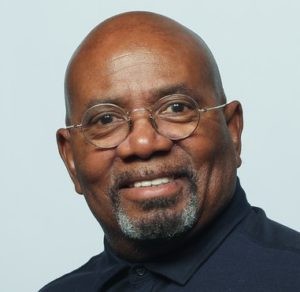1921 is personal to me. It is personal for two reasons.
1921 was the year of my mother’s birth in Muskogee, Okla. Had she lived, she would be 100 years old this coming September. My mom used to say, “If you don’t know who you are and where you come from, you’ll never figure out how to get to where you’re going.” Consequently, I spend a lot of time reflecting on history and conjuring up my physical and spiritual ancestors.

Aidsand Wright-Riggins
1921 also is personal to me because 2021 is the 100th anniversary of the massacre of more than 300 African Americans and the burning of businesses and homes in the Greenwood neighborhood of Tulsa, Okla.
Greenwood was the site of the violent race riot triggered by white supremacist bigotry and irrational fears that left family members of mine narrowly escaping with their lives. The business they owned, the Ragsdale Funeral Home, was burned to the ground by a white mob along with most other businesses in that Black community.
I am proud to trace my lineage to the Ragsdales. The Ragsdales started a family legacy of funeral service by opening the nation’s first African American funeral business. It is owned by the same family to this day. The Ragsdale family history in funeral service dates back to the late 1800s in what is now called the state of Oklahoma.
The Ragsdale Undertaking Company began after the family relocated from Arkansas to Indian Territory. They opened a livery stable in Muskogee that evolved into our patriarch, William Ragsdale, renting horse-drawn hearses to mourners. Later, he studied embalming, which led to the opening of Ragsdale Undertaking Company in 1889 with a branch in Tulsa.
“My mom used to say, ‘If you don’t know who you are and where you come from, you’ll never figure out how to get to where you’re going.’”
The Ragsdales never rebuilt their funeral home business in Tulsa. The family eventually opened firms in Ardmore, Okla., as well as in Phoenix and San Diego. One of my relatives, Onlia Ragsdale, became the first person in her family to earn a college degree and went on to become president of the National Association of Colored Women’s Oklahoma chapter.
I am certain my mother must have been influenced by the model Onlia set for her, as my mom became the first in her immediate family to graduate from college at Langston University. Another family member, Theodore “Ted” Ragsdale, became the Oklahoma NAACP president in the 1930s.

A Ragsdale family photo shows five Ragsdale men in an automobile. Among them is H.W. Ragsdale, who owned a funeral home in Tulsa and fled with his family after the Greenwood District and his business were destroyed by white mauraders.
I tell these stories because today, in 2021, they remain personal to me. This year, 100 years after the birth of my mother and the burning and destruction of the neighborhood and business where my family lived and thrived, the governor of Oklahoma, Kevin Stitt, recently signed House Bill 1775. It prevents educators from “teaching concepts that could cause students to feel uncomfortable for actions their race or sex committed in the past.”
Although the House bill doesn’t include the words “Critical Race Theory,” proponents of the bill passed by Oklahoma’s GOP-led legislature say the measure effectively eliminates teaching Critical Race Theory in public schools. When did we stop teaching subjects that made people feel uncomfortable?
“When did we stop teaching subjects that made people feel uncomfortable?”
I can assure you that my family did not feel the least bit comfortable moving their home 189 miles away from the atrocities they witnessed in 1921. I can guarantee you that the matriarchs and patriarchs of my family told this story with tears in their eyes. Like Abraham Joshua Heschel, they understood that America is a country where “few are guilty, but all are responsible.”
They understood that all are responsible for evil because only a nation indifferent to suffering will tolerate injustice and systemic inequality. History is personal.
House Bill 1775 is personal to me because it demonstrates that indifference to evil is more insidious than evil itself. 2021 is personal to me, because an end to feeling “uncomfortable” brings a callousness that threatens our very humanity.
Rather than forgetting the past, much of what the Bible demands is that we remember: “Take heed to thyself; and keep thy soul diligently, lest thou forget the things which thine eyes have seen, and lest they depart from thy heart all the days of thy life; make them known unto thy children and unto thy children’s children” (Deuteronomy 4:9).
All this is personal to me because my faith informs me that recollection is a holy act. We sanctify the present best by remembering the past. We must live today as if the fate of all of time totally depends on a single moment. Why? Because it does.
Aidsand F. Wright-Riggins is a “retired” American Baptist minister, serving as acting executive director of the New Baptist Covenant, mayor of Collegeville, Pa., and executive director emeritus of the American Baptist Home Mission Societies.
Related articles:
Is it now illegal to mention the Tulsa Race Massacre in the classrooms of Oklahoma? | Opinion by Alan Bean
It’s not just the SBC banning Critical Race Theory; now state legislatures are joining the fight
Juneteenth should remind us of all the things we don’t know | Opinion by Mark Wingfield
I’m weary of hearing “I’m sorry” from white people | James Ellis III
Dear white Christians, are you done praying yet? | Opinion by Natasha Nedrick


